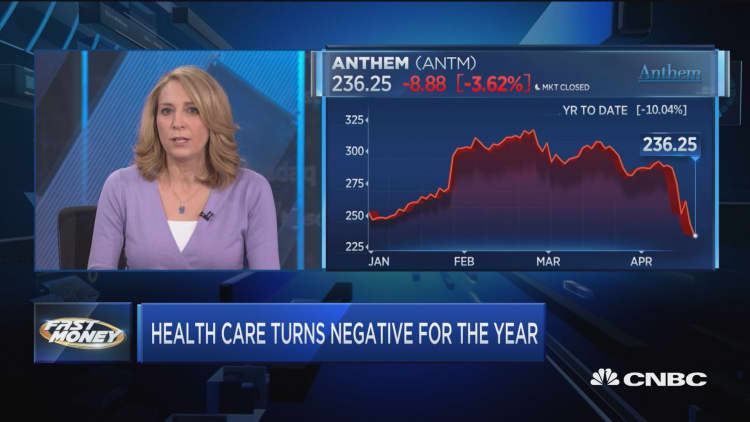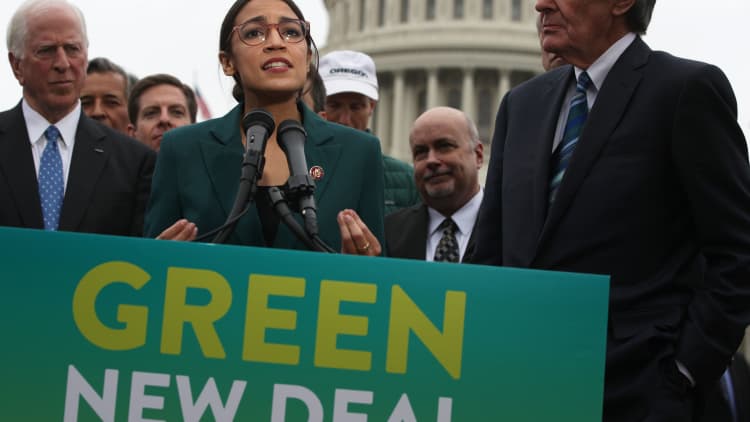UnitedHealth Group CEO David Wichmann warned investors on Tuesday that "Medicare for All" proposals pushed by Democratic lawmakers and presidential candidates would "destabilize the nation's health system."
A number of Democratic proposals call for eliminating private health insurance and replacing it with a universal Medicare plan, claiming it would help reduce administrative inefficiencies in the health-care system. Most recently, Sen. Bernie Sanders of Vermont unveiled a bill that would create a government-run system to provide health insurance for all Americans. Freshman Rep. Alexandria Ocasio-Cortez is pushing a similar plan.

Wichmann, who rarely discusses politics, told investors on a post-earnings conference call Tuesday such measures would "surely jeopardize the relationship people have with their doctors, destabilize the nation's health system and limit the ability of clinicians to practice medicine at their best."
"And the inherent cost burden would surely have a severe impact on the economy and jobs — all without fundamentally increasing access to care," he added.
The executive noted that health costs have grown less quickly than overall inflation for 16-straight months, saying "it has lessened considerably due to better management of price inflation and earlier and more effective management of care in lower cost settings."
For more on investing in health-care innovation, click here to join CNBC at our Healthy Returns Summit in New York City on May 21.
Despite concerns from UnitedHealth, public support for a single-payer system has grown. According to a survey from the Kaiser Family Foundation last month, 56% of respondents supported a national health plan in which all Americans would get insurance from a single government plan, versus 39% who said they oppose it.

Health care has been the worst-performing sector in the stock market this year, rising by just 4.17% as of Monday's close, significantly lagging the broader market indexes. The Dow Jones Industrial Average is up 13.35% over the same period, and the S&P 500 is 16.12% higher.
The biggest decliners have been from insurers, which are under threat from "Medicare for All" proposals. Investors are also watching the Trump administration's legal challenge to former President Barack Obama's signature health insurance law, the Affordable Care Act.
A federal appeals court in New Orleans said last week that it will hear arguments in July on a lawsuit backed by President Donald Trump to overturn Obamacare. Dismantling the health-care law would lead to 32 million more uninsured people in the U.S. by 2026, according to an estimate from the Congressional Budget Office.
Earlier Tuesday, UnitedHealth reported first-quarter earnings and revenue that beat Wall Street's expectations. It was driven by strength in its pharmacy benefit management business and higher enrollment for its health plans.
The industry bellwether, which is the first health insurer to report quarterly results, also raised its full-year adjusted earnings forecast to between $14.50 and $14.75 per share from its prior projection of $14.40 to $14.70 a share.
— CNBC's Bertha Coombs contributed to this report.


